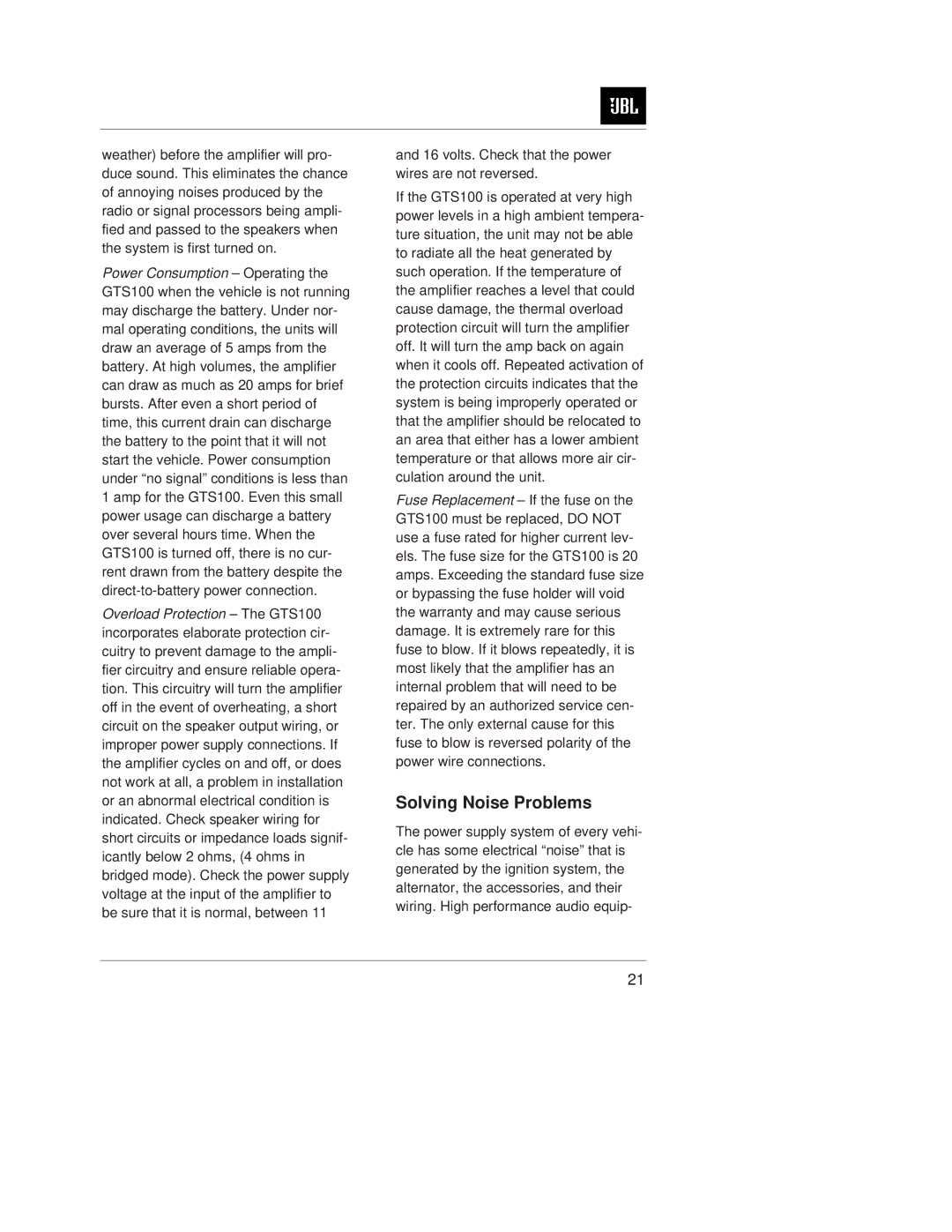
weather) before the amplifier will pro- duce sound. This eliminates the chance of annoying noises produced by the radio or signal processors being ampli- fied and passed to the speakers when the system is first turned on.
Power Consumption – Operating the GTS100 when the vehicle is not running may discharge the battery. Under nor- mal operating conditions, the units will draw an average of 5 amps from the battery. At high volumes, the amplifier can draw as much as 20 amps for brief bursts. After even a short period of time, this current drain can discharge the battery to the point that it will not start the vehicle. Power consumption under “no signal” conditions is less than 1 amp for the GTS100. Even this small power usage can discharge a battery over several hours time. When the GTS100 is turned off, there is no cur- rent drawn from the battery despite the
Overload Protection – The GTS100 incorporates elaborate protection cir- cuitry to prevent damage to the ampli- fier circuitry and ensure reliable opera- tion. This circuitry will turn the amplifier off in the event of overheating, a short circuit on the speaker output wiring, or improper power supply connections. If the amplifier cycles on and off, or does not work at all, a problem in installation or an abnormal electrical condition is indicated. Check speaker wiring for short circuits or impedance loads signif- icantly below 2 ohms, (4 ohms in bridged mode). Check the power supply voltage at the input of the amplifier to be sure that it is normal, between 11
and 16 volts. Check that the power wires are not reversed.
If the GTS100 is operated at very high power levels in a high ambient tempera- ture situation, the unit may not be able to radiate all the heat generated by such operation. If the temperature of the amplifier reaches a level that could cause damage, the thermal overload protection circuit will turn the amplifier off. It will turn the amp back on again when it cools off. Repeated activation of the protection circuits indicates that the system is being improperly operated or that the amplifier should be relocated to an area that either has a lower ambient temperature or that allows more air cir- culation around the unit.
Fuse Replacement – If the fuse on the GTS100 must be replaced, DO NOT use a fuse rated for higher current lev- els. The fuse size for the GTS100 is 20 amps. Exceeding the standard fuse size or bypassing the fuse holder will void the warranty and may cause serious damage. It is extremely rare for this fuse to blow. If it blows repeatedly, it is most likely that the amplifier has an internal problem that will need to be repaired by an authorized service cen- ter. The only external cause for this fuse to blow is reversed polarity of the power wire connections.
Solving Noise Problems
The power supply system of every vehi- cle has some electrical “noise” that is generated by the ignition system, the alternator, the accessories, and their wiring. High performance audio equip-
21
